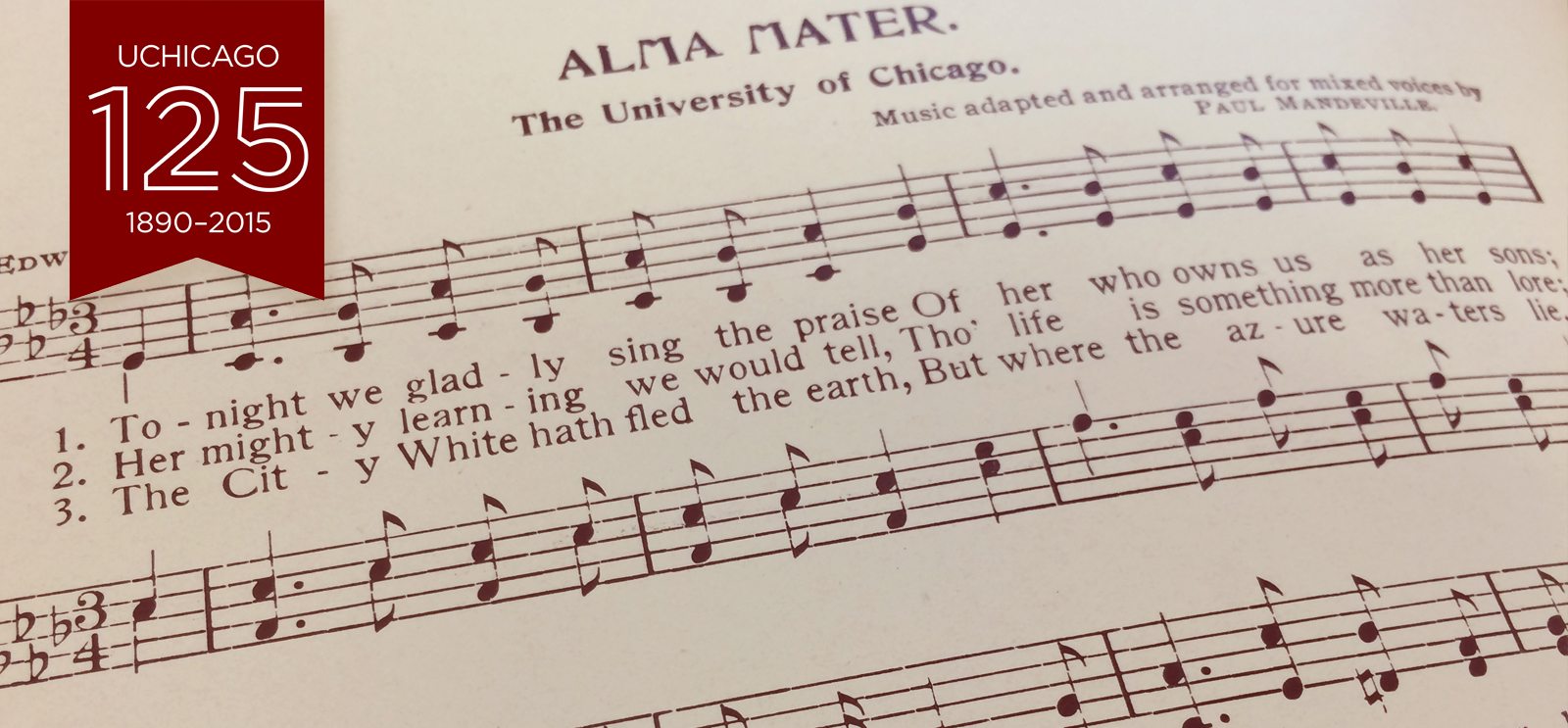
Last week John W. Boyer, AM’69, PhD’75, dean of the College, completed a three-event book tour without going north of 57th Street.
 On Wednesday he spoke at the Divinity School’s community lunch in Swift Hall. On Friday he did back-to-back readings at the Seminary Co-op; the store had to schedule a second reading to meet demand.
On Wednesday he spoke at the Divinity School’s community lunch in Swift Hall. On Friday he did back-to-back readings at the Seminary Co-op; the store had to schedule a second reading to meet demand.
The page-turner in question is The University of Chicago: A History (University of Chicago Press, 2015). The book builds on the 17 monographs he’s published since 1996.
At the Div School lecture, Boyer spoke about the history behind his history. Here are five things that might surprise you.
1. There are notable similarities between Boyer and Richard Rosengarten, AM’88, PhD’94, interim dean of the Divinity School, who introduced Boyer at the lunch.
They are the only two deans who are University alumni. They are the tallest deans. And they both like to ride their bicycles to and from campus. “He’s a little faster than I am,” Rosengarten admitted.
2. Thucydides and World War II helped inspire the book.
When Boyer was a graduate student, one of his mentors was Leonard Krieger, a distinguished scholar of German history and the first University Professor at UChicago.
During World War II Krieger served in the research and analysis branch of the Office of Strategic Services, the precursor to the CIA. His boss was William Langer, a historian on leave from Harvard.
[[{"type":"media","view_mode":"media_original","fid":"3054","attributes":{"alt":"","class":"media-image","height":"589","typeof":"foaf:Image","width":"500"}}]] Boyer (left) with Krieger, 1976. (University of Chicago Photographic Archive, apf3-00778, Special Collections Research Center, University of Chicago Library)
After Pearl Harbor was bombed, Krieger and his colleagues went to talk to Langer in despair. Langer’s advice, according to Boyer, was not to become disheartened: “You’re historians. You’ve already read Thucydides.”
What did that have to do with Germany’s victories over Belgium and France? “The way wars start is often very different from the way wars end,” Boyer said.
In other words, “Historians often have unique insight into the subject of human agency and contingent events. Outcomes are not predetermined. That may be helpful in guiding and making wiser choices.”
So in the late 1990s, when the University was considering making controversial changes to the size of the College, “I remembered this story about Langer and Krieger and Thucydides,” Boyer said. He started digging through the University’s archives “instead of working on the history [Austria, 1867–1985] that Oxford was expecting.”
The result was his first monograph on the historical role of the College in the University—financially, demographically, and culturally.
3. Boyer never intended to write a University history.
He didn’t even intend to write a second monograph. But the following year brought a fresh controversy over the Core curriculum. Older faculty loved the Core; younger faculty wanted to reduce its size significantly.
At some universities they go to war over the football coach, Boyer noted dryly. “At this institution, we go to war over curricula.”
So he went back into the archives. He discovered there had been seven or eight different Cores since it was first invented in the 1930s. Another monograph was born.
And then, “People began to say, ‘That’s nice. What’s the next one going to be on?’”
[[{"type":"media","view_mode":"media_original","fid":"3055","attributes":{"alt":"","class":"media-image","height":"437","typeof":"foaf:Image","width":"500"}}]] President Hutchins “meets” Dean Boyer. (Chicago Special Collections, University of Chicago Library)
4. In Boyer's view, the most fascinating chapter is the one on Robert Maynard Hutchins.
“It had to be Hutchins. He’s such a totemic figure. Extraordinarily loved by his supporters, extraordinarily disliked by his detractors.”
5. Boyer, a five-term College dean, doesn’t mind a little drama in his University politics.
“Sturm und Drang is good. It’s good for the soul.”
